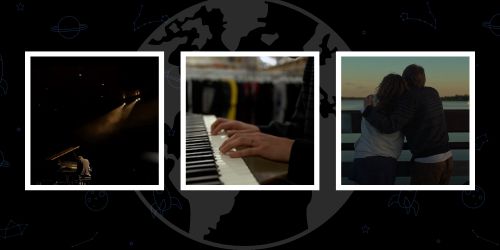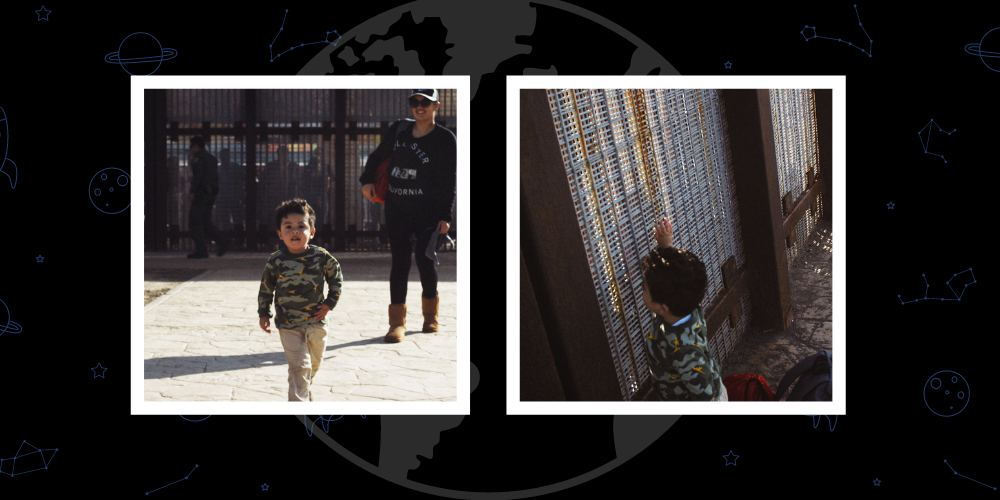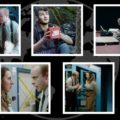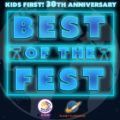This month, audiences can screen The Healing Note on the Planet Classroom Network. This film is curated for the Planet Classroom Network by Planet Classroom.
The Healing Note, directed by Dre Whitney follows an aspiring pianist, Thomas, as he struggles to get a grip on his life while suffering with a condition called Essential Tremors. Thomas meets and falls in love with Amelia. This bolsters his confidence and acceptance, leading to a satisfying journey of personal growth and resilience.
The Global Search for Education is pleased to welcome Director Dre Whitney.
Dre, what inspired you to tell the story of The Healing Note? Is it based on a true story?
For my senior year of high school, my teacher challenged my film class to make a 20-minute film. I was approached by a good friend of mine (Ethan Rommel) who had a short love story idea, where the protagonist has essential tremors, and he meets a girl who helps cure him. He asked me to direct the short. I agreed to it but told him that the story was missing something. The best part about telling a story in a cinematic way is watching it evolve into something more. Just by adding the element of the piano, we were able to create an internal struggle in the character. We watch Thomas over the course of the film as he tries to focus on both Amelia and playing the piano. I was heavily inspired by the film Whiplash as I explored obsession and how it can change us. The Healing Note is not based on a true story, but Essential Tremors is a real thing and sadly there is no cure at this time. But I was inspired by my aunt, who recently was paralyzed due to the COVID vaccine. She was told she would never walk again. But by her dedication and hard work, she was able to walk again. My aunt’s miracle very much inspired me to make this film.
How did you approach portraying the protagonist’s journey of overcoming health challenges?
Working with the writer of the film, we wanted to show the hardships of everyday life for people who have to live with health challenges like Essential Tremors. We did a lot of research on Essential Tremors, and I wanted to try my best to respect anyone who is diagnosed with something like tremors. I also wanted to show that it’s not fair to treat people wrongly due to things they can’t control. Thomas’s change in the story emphasizes that it’s important to accept that we can only control ourselves and our thoughts. We must look on the bright side of things.
Can you share any memorable moments from the filming process that remain with you? What did you learn in the process of telling the story?
Looking back on the whole production as a whole, some of my favorite memories were just laughing and having a good time with the cast and crew. One moment that sticks out to me in particular was filming the date “piano scene”. It was my first time shooting in an actual location besides the school. I was a little nervous at first, but once Trace Edge (Thomas) started playing for the first time, I felt a wave of emotions as I felt that everything was really starting to come together. That scene to this day is still my favorite scene of the film!
What message do you hope viewers take away from your film?
A great film director once said, “I like to make films to help overcome my own demons and fears.” Not only do I love to tell stories and take the audience on an emotional journey, but I make movies to help answer big questions for myself. Making films helps me overcome my own fears and even learn the true principles and virtues to live a happy and successful life. What would I do if I lost a sense that was out of my control? How do I overcome adversity? Is love what gives us true purpose? These were some of the questions that I wanted to answer and I hope the same for the audience.
Thank you Dre!
C. M. Rubin and Dre Whitney
Don’t Miss The Healing Note, now streaming on the Planet Classroom Network. This film is curated by Planet Classroom.







Recent Comments